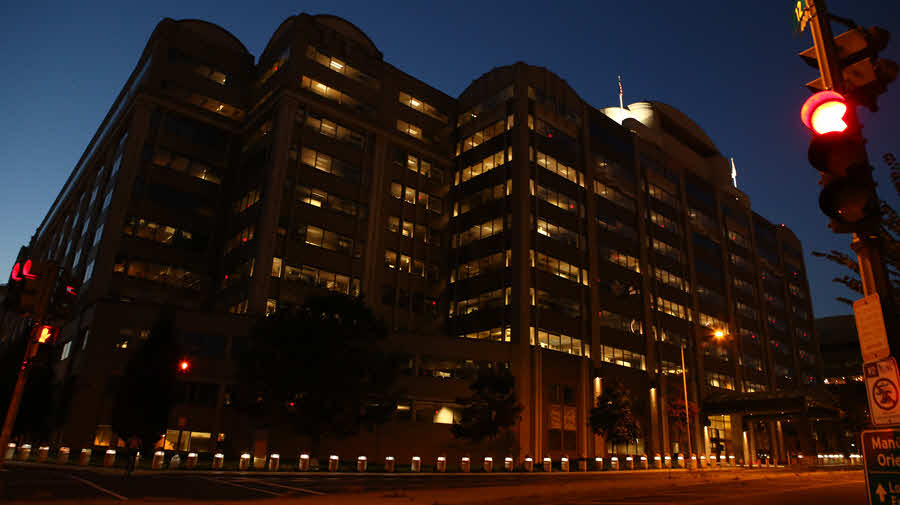FCC Won't Turn Over Documents to N.Y. Attorney General

The smarter way to stay on top of broadcasting and cable industry. Sign up below
You are now subscribed
Your newsletter sign-up was successful
FCC general counsel Tom Johnson has told the New York State attorney general that the FCC is not providing information for his investigation into fake net-neutrality comments, saying those comments did not affect the review, and challenging the state's ability to investigate the feds.
Related: New York AG Investigating Fake Net Neutrality Comments
In a letter to N.Y. AG Eric Schneiderman, Johnson explained that while there is potential in many important rulemakings for advocates on either side to abuse the process or create the appearance of "numerical advantage," FCC decisions are not based on the number of comments, but on their weight, and how their substance bears on legal and public policy. As a result, the FCC has never "burdened" commenters with requiring ID verification or expended the "massive resources" needed to verify identities.
"Rather than dwell on how accurately automated or form submissions reflect actual popular support, the commission has instead focused on encouraging robust participation in its proceedings," Johnson wrote.
Johnson said of the AG's allegations -- echoed by Democratic FCC commissioner Jessica Rosenworcel -- that the process was corrupted by false names on comments, there is no evidence that affected the FCC's ability to review and respond to comments.
Related: Rosenworcel, N.Y. AG Ask FCC to Investigate Net-Neutrality Comments, Delay Vote
He also argued that any "cursory" review of the draft would show just the opposite -- that the FCC painstakingly reviewed and responded to the record.
As for nonsubstantive comments under multiple different names that opposed or supported Title II, he said the draft order neither relies on nor cites any of those.
Related: Pew Finds Millions of Issues With Net-Neutrality Comments
Johnson also has jurisdictional issues with a state investigating a federal agency's rulemaking process or trying to compel it to produce documents. He also said Schneiderman has not supported his suggestion that fake New Yorker names on comments "likely violates state laws."
He also said that turning over the detailed info Schneiderman sought would reveal info on how the FCC protects the security of its comments system and that it would be unduly burdensome, if not impossible, to provide logs of IP addresses that separated legitimate from illegitimate ones.
"This letter shows the FCC’s sheer contempt for public input and unreasonable failure to support integrity in its process," said a clearly unhappy Rosenworcel following the letter's circulation to the press. "To put it simply, there is evidence in the FCC’s files that fraud has occurred and the FCC is telling law enforcement and victims of identity theft that it is not going to help. Moreover, the FCC refuses to look into how nearly half a million comments came from Russian sources. Failure to investigate this corrupted record undermines our process for seeking public input in the digital age."
Rosenworcel and Schneiderman had said the ongoing investigation was reason to delay the vote. She renewed that call Friday. "This is unacceptable. Until we get to the bottom of this mess with a proper investigation, no vote should take place.”
The smarter way to stay on top of broadcasting and cable industry. Sign up below
Contributing editor John Eggerton has been an editor and/or writer on media regulation, legislation and policy for over four decades, including covering the FCC, FTC, Congress, the major media trade associations, and the federal courts. In addition to Multichannel News and Broadcasting + Cable, his work has appeared in Radio World, TV Technology, TV Fax, This Week in Consumer Electronics, Variety and the Encyclopedia Britannica.

